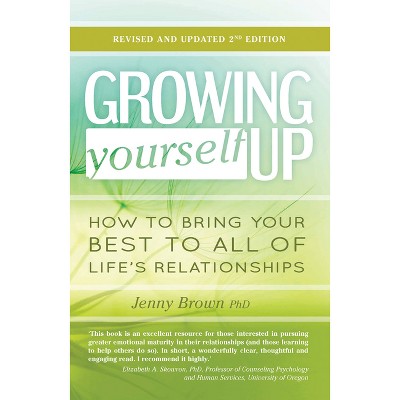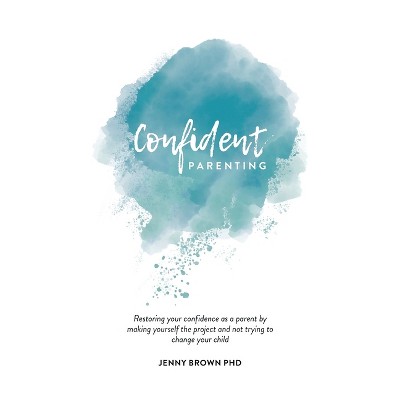Sponsored

Birth Strike - by Jenny Brown (Paperback)
In Stock
Sponsored
About this item
Highlights
- When House Speaker Paul Ryan urged U.S. women to have more children, and Ross Douthat requested "More babies, please," in a New York Times column, they openly expressed what policymakers have been discussing for decades with greater discretion.
- About the Author: Jenny Brown is a women's liberation organizer and former editor of Labor Notes.
- 240 Pages
- Social Science, Feminism & Feminist Theory
Description
About the Book
When House Speaker Paul Ryan urged U.S. women to have more children, and Ross Douthat requested "More babies, please," they openly expressed what U.S. policymakers have been discussing for decades with greater discretion. Using technical language like "age structure," "dependency ratio," and "entitlement crisis," establishment think tanks are raising the alarm: if U.S. women don't have more children, we'll face an aging workforce, slack consumer demand, and a stagnant economy. Feminists generally believe that a prudish religious bloc is responsible for the fight over reproductive freedom in the U.S., but hidden behind this conventional explanation is a dramatic fight over women's reproductive labor. On one side, elite policymakers want an expanding workforce reared with a minimum of employer spending and a maximum of unpaid women's work. On the other side, women are refusing to produce children at levels desired by economic planners. With little access to childcare, family leave, health care, and with insufficient male participation, U.S. women are conducting a spontaneous birth strike. In other countries, panic over low birth rates has led governments to underwrite childbearing with generous universal programs, but in the U.S., women have not yet realized the potential of our bargaining position. When we do, it will lead to new strategies for winning full access to abortion and birth control, and for improving the difficult working conditions U.S. parents now face when raising children.Book Synopsis
When House Speaker Paul Ryan urged U.S. women to have more children, and Ross Douthat requested "More babies, please," in a New York Times column, they openly expressed what policymakers have been discussing for decades with greater discretion. Using technical language like "age structure," "dependency ratio," and "entitlement crisis," establishment think tanks are raising the alarm: if U.S. women don't get busy having more children, we'll face an aging workforce, slack consumer demand, and a stagnant economy.
Feminists generally believe that a prudish religious bloc is responsible for the protracted fight over reproductive freedom in the U.S. and that politicians only attack abortion and birth control to appeal to those "values voters." But hidden behind this conventional explanation is a dramatic fight over women's reproductive labor. On one side, elite policymakers want an expanding workforce reared with a minimum of employer spending and a maximum of unpaid women's work. On the other side, women are refusing to produce children at levels desired by economic planners. By some measures our birth rate is the lowest it has ever been. With little access to childcare, family leave, health care, and with insufficient male participation, U.S. women are conducting a spontaneous birth strike.
In other countries, panic over low birth rates has led governments to underwrite childbearing and childrearing with generous universal programs, but in the U.S., women have not yet realized the potential of our bargaining position. When we do, it will lead to new strategies for winning full access to abortion and birth control, and for improving the difficult working conditions U.S. parents now face when raising children.
Review Quotes
"Jenny Brown compellingly explains the low U.S. birth rate: those primarily responsible for the labor of bearing and raising children (women) are responding as one should to lousy working conditions--by going on strike! Brown's bold and brilliant book ventures into terrain that left and feminist thinkers have avoided for far too long. A breathtakingly accessible analysis, supported by riveting and intimate testimonials, it's also an inspiring call to action."
--Liza Featherstone, The Nation
"Birth Strike is a well-researched and wide-ranging analysis of how the public responsibilities of pregnancy and parenting have been privatized to benefit a capitalist for-profit system designed to minimize labor costs to produce wealth for the few. Offers fresh insight into how women's biological power may be harnessed to resist reproductive oppression."
--Loretta J. Ross, author of Reproductive Justice: An Introduction and editor of Radical Reproductive Justice
"An audacious analysis of the falling U.S. birth rate; of the exploitive, often untenable conditions for raising children here and now; and of what might be done to change things. Feminist insight illuminates every chapter of this thoughtful book."
--Alix Kates Shulman, author of Memoirs of an Ex-Prom Queen and A Marriage Agreement and Other Essays: Four Decades of Feminist Writing
"An astute analysis of power relations not only in the sphere of reproduction but also in the worlds of work, immigration, and government policy as they bear on women's ability to control their bodies. She illuminates the historical context of the writings of Marx and Malthus, the crusades of Comstock, and recurring elite pleas for women to supply more workers and soldiers. Brown lays bare why U.S. women who want to be mothers, and those who don't, have it far worse here than in Europe. Then she tells us how to change that."
--Jane Slaughter, Labor Notes
"This book lays bare how U.S. politics around race and immigration are closely connected to the struggle for reproductive freedom, both in the past and today. You will never think about reproductive rights in the same way again."
--Ibram X. Kendi, author of Stamped from the Beginning: The Definitive History of Racist Ideas in Americaand How to Be an Antiracist.
"Jenny Brown reveals to us how and why reactionary ruling interests in the United States support heavy birth rates and oppose both abortion and birth control. Also given is a good report of various other countries and their prevailing interests. In all, an excellent read!"
--Michael Parenti, author of The Culture Struggle, Democracy for the Few, and Against Empire
"Why are we still struggling for childcare and paid leave in the U.S.? Basic rights to birth control and abortion? In Birth Strike, Jenny Brown exposes the economic interests at play and shows the mighty power of women to change the game."
--Lise Vogel, author of Marxism and the Oppression of Women
"Jenny Brown provides a compelling case that the battle over abortion and birth control is not just a religious or cultural difference of opinion. Rather, within these battles are deeper debates over the control of human labor. Capitalism cannot exist without labor, and employers have a strong interest in ensuring a steady supply. The more women can control their own bodies, the less power capitalists have over social reproduction. Filled with fascinating history and contemporary analysis, this book illuminates how women's liberation is in fundamental conflict with capitalism. Read this book to learn how women must take their political struggle beyond what are often
About the Author
Jenny Brown is a women's liberation organizer and former editor of Labor Notes. She was a leader in the grassroots campaign to have morning-after pill contraception available over-the-counter in the U.S. She is co-author of Women's Liberation and National Health Care.Shipping details
Return details
Frequently bought together
Trending Non-Fiction





Discover more options













